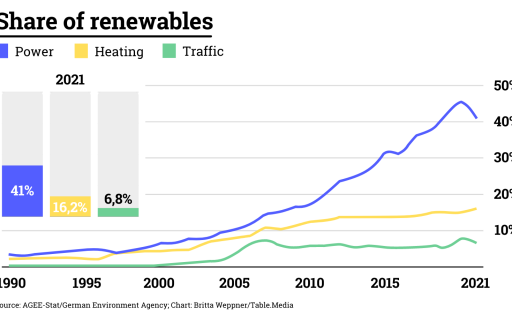



In a new report, the Australian federal government defends a key point of its climate protection program. However, critics continue to accuse the carbon offset mechanism of doing little to protect the climate and would rather mask emissions. The role of voluntary carbon allowances remains controversial.
By

Around the International Green Week, the dispute over biofuels in Germany is picking up. Agriculture and industry associations view e-fuels as an important part of the transition in the transport sector. Environmental NGOs, on the other hand, criticize their use. An overview of the debates surrounding bioenergy. Will they remain niche?
By


Climate action is no priority for the Japanese government during its G7 presidency. Prime Minister Kishida rather talks about national security, new technologies and nuclear power. When it comes to decarbonization, the country relies on nuclear power and trillion-dollar investments.
By Redaktion Table


At the Franco-German Councils of Ministers, both countries demonstrate unity. But Chancellor Scholz puts the brakes on the EU's response to the Inflation Reduction Act (IRA).
By Till Hoppe

The European Court of Justice has withdrawn a preliminary ruling that would have delayed joint EU gas purchases. The court reversed its Jan. 5 ruling Wednesday in response to a statement from the Commission, a spokesman for the court told Europe.Table yesterday.
By Manuel Berkel

The Élysée Treaty was signed 60 years ago. Today, Germany and France are strong partners in Europe. But if they don't work more closely together on climate and energy policy, it will jeopardize the EU's cohesion, write Sébastien Treyer and Nicolas Berghmans of the Paris-based think tank IDDRI.
By Experts Table.Briefings